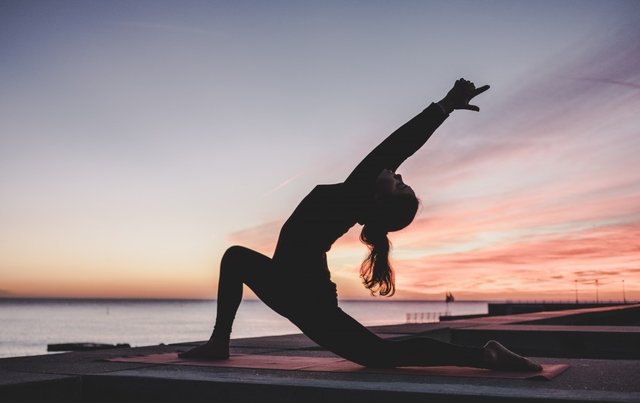Laughter as a Yoga Practice

The word Yoga comes from Sanskrit “yuj” which means to harmonize
with the energy source that gives us life. In a systematic process
training the body and mind, the yogi gradually seeks
achieve this state of unity by breaking free of the barriers created by
mind, and reaching a state of continuous inner peace.
Patanjali, in the classic text Yoga Sutras, defined yoga as
"The cessation of the oscillations of the mind." In simple words, this
it means gaining the ability to be in the present.
Usually this does not happen. Our gift is too small
and limited, being constantly disturbed by our
imaginations of the past and the future. The fact is that
rarely are we in the present precisely because our mind
oscillates a lot. And that brings agitation, anxiety, stress, lack of peace.
Just knowing the nature of our mind is distracted by
ease and miss the present moment, yogis for about 5,000
years have been developing different approaches to bring the
back to the present.
Several paths then emerged. Hatha Yoga, which is more
known in the West with their physical postures and breaths. Raja
Yoga, with meditation.
Karma Yoga, through daily action, Jnana Yoga, with self-observation. Bhakti Yoga, with the
devotion. And so many other ways that were emerging to serve
as a platform to the present. Most importantly, through
Either way, the yogi reaches the same goal, the yuj,
merging their mental oscillations with the Present, reaching the
inner peace.
Most recently it was created by an Indian yogi and doctor, Dr.
Madan Kataria, another system of practices called Yoga of the
Laughter (Hasya Yoga). In this system, playful games, exercises
breathing, laughter and relaxation are interspersed to help
keep the mind of the practitioner in the Present.
Many adamant yogis who do not know Hasya Yoga
Laughter), you can say that Laughter is not Yoga. In my opinion
who practices traditional yoga and regular meditation
For the past 10 years, this is a mistake. Laughter can, yes, give you
assist in the process of attaining the state of Yoga, of yuj, of
harmony with our vital energy source.
I have several good reasons to say that. Are we going to them?
- Deep breathing exercise. When you laugh out loud,
we are breathing out the air and emptying the lung more completely.
So we allow deeper inspiration, getting more
prana (vital energy). In everyday life we expire very superficially,
leaving about 75% of the stagnant air in the lung. Laughing
more easily expel residual air from the lung and create
room for a better quality inspiration. - Mental Clarity and Energy. Result of this better oxygenation
is to have more energy available to the body and mind, bringing clarity
mental and disposition. Without mental clarity and disposition, impossible
proceed to the ultimate goal of Yoga. - Greater diaphragm width. The diaphragm is an organ
essential for the movement of our breath. In everyday life, your
movement is restricted and short, letting our breath
superficial. With various laughter techniques as well as the exercises of
“HOHO HAHAHA” heating, we stimulate the amplitude of the
diaphragm movement, improving breathing quality. Or
that is: more breathing, more energy, more mental clarity, more
next to a Yoga internship. - Contentment (Santosha). Contentment is one of the bases
Yoga It is being happy for no apparent reason. Be happy in any
condition is a powerful spiritual practice. Sounds simple but no
is. Usually our happiness / contentment is limited by
external conditions like a good job, good family, money etc.
Yoga seeks permanent, inner happiness without conditions.
Laughter stimulates hormonal secreting glands in brain
associated with contentment and well-being. That is: through laughter
“santosha” is easier to achieve because if we have positive hormones
in the brain we are more likely to deal positively with situations
difficult. - Deep relaxation. Laughter puts you in a very position
favorable to reach deep stages of relaxation. After
a series of laughter and breathing exercises comes the perfect time
to immerse yourself in relaxation, facilitating the process of
internalization of the mind (pratyahara). - Meditation. When we can relax and internalize the mind,
the opportunity arises to get to know each other better through
meditation and self-observation. It is much easier to flow at one stage
meditative after a laughing session than if we tried to meditate
without any previous exercise. - Yoga. Laughter helps us relax, redirect the energy of
our mind inward, with full awareness of the Present, without
distractions and worries of the past or future. So we move to
look more clearly at our complex existence which
interrelates with all Existences. Flashes of this union with
all Existences will come with regularity in practice, in the
bringing indescribable peace. And little by little, the flashes will fade
stabilizing until a permanent stage of perception is reached
of the Whole, which is, finally, the goal of Yoga.
Spiritual practice does not necessarily imply frowning faces
and serious. See someone very high spiritually, like the Dalai
Mud. Remember his smile? Well ...
Discipline, of course, is required. But she doesn't need to bring you a
frown on the face. She can be light!
Smiling makes everything lighter and puts your mind on a stage
favorable to continue the battle of knowing Himself
in the face of world pressures.
Namaste and good laughs!
Grea topic